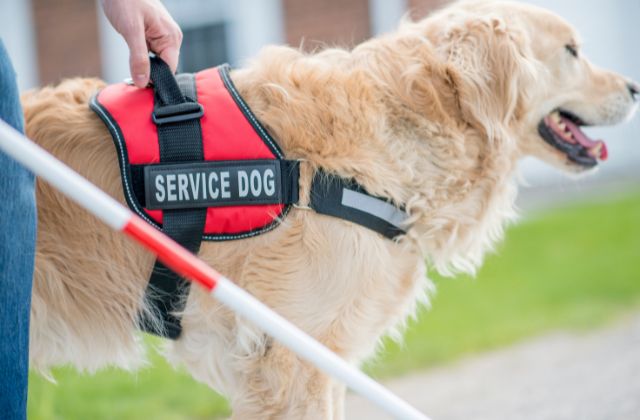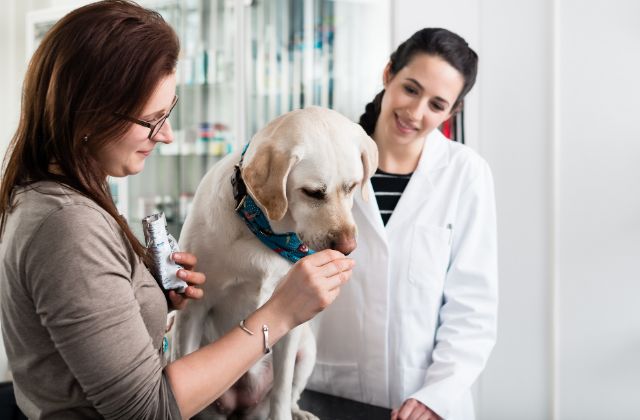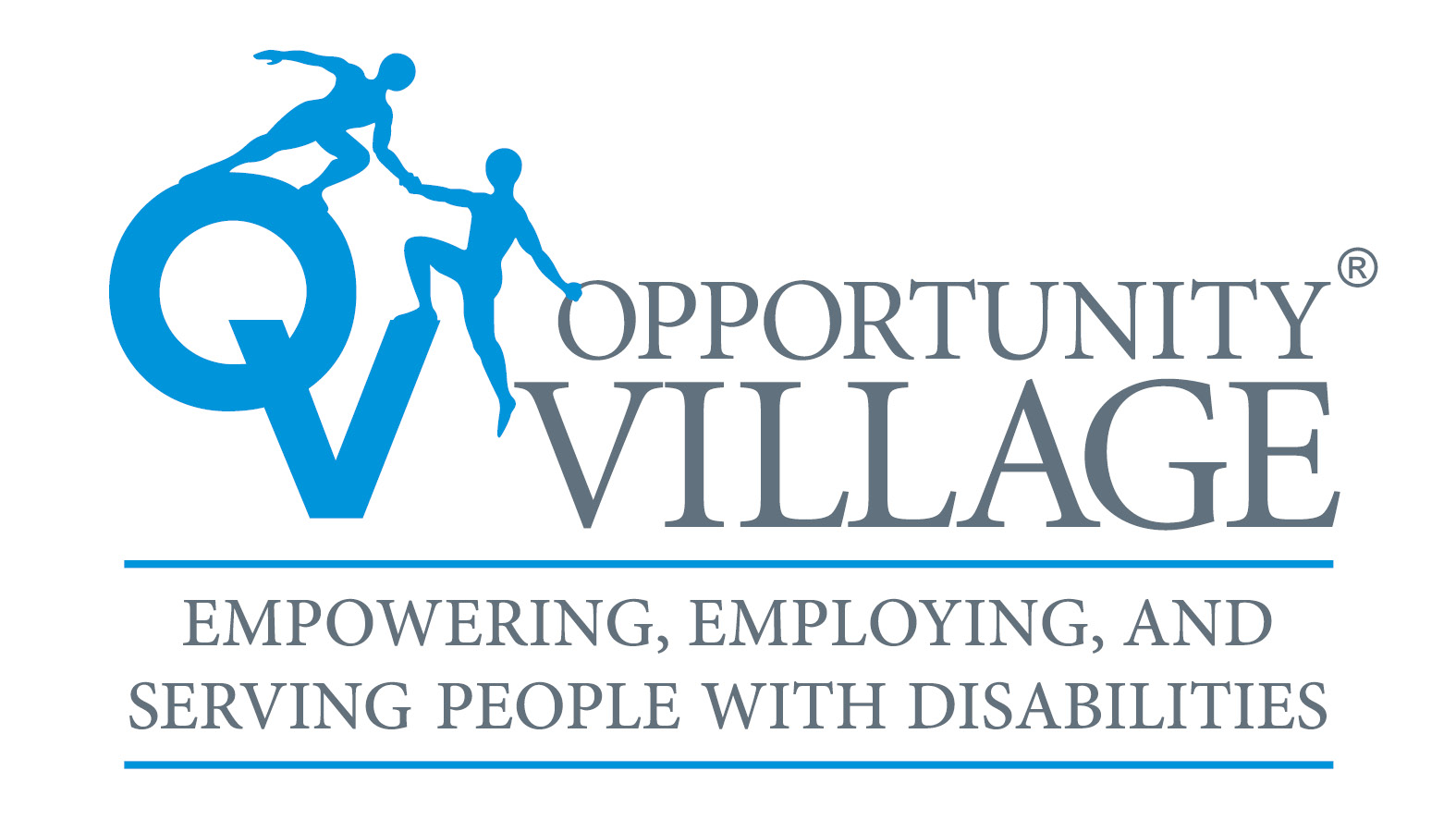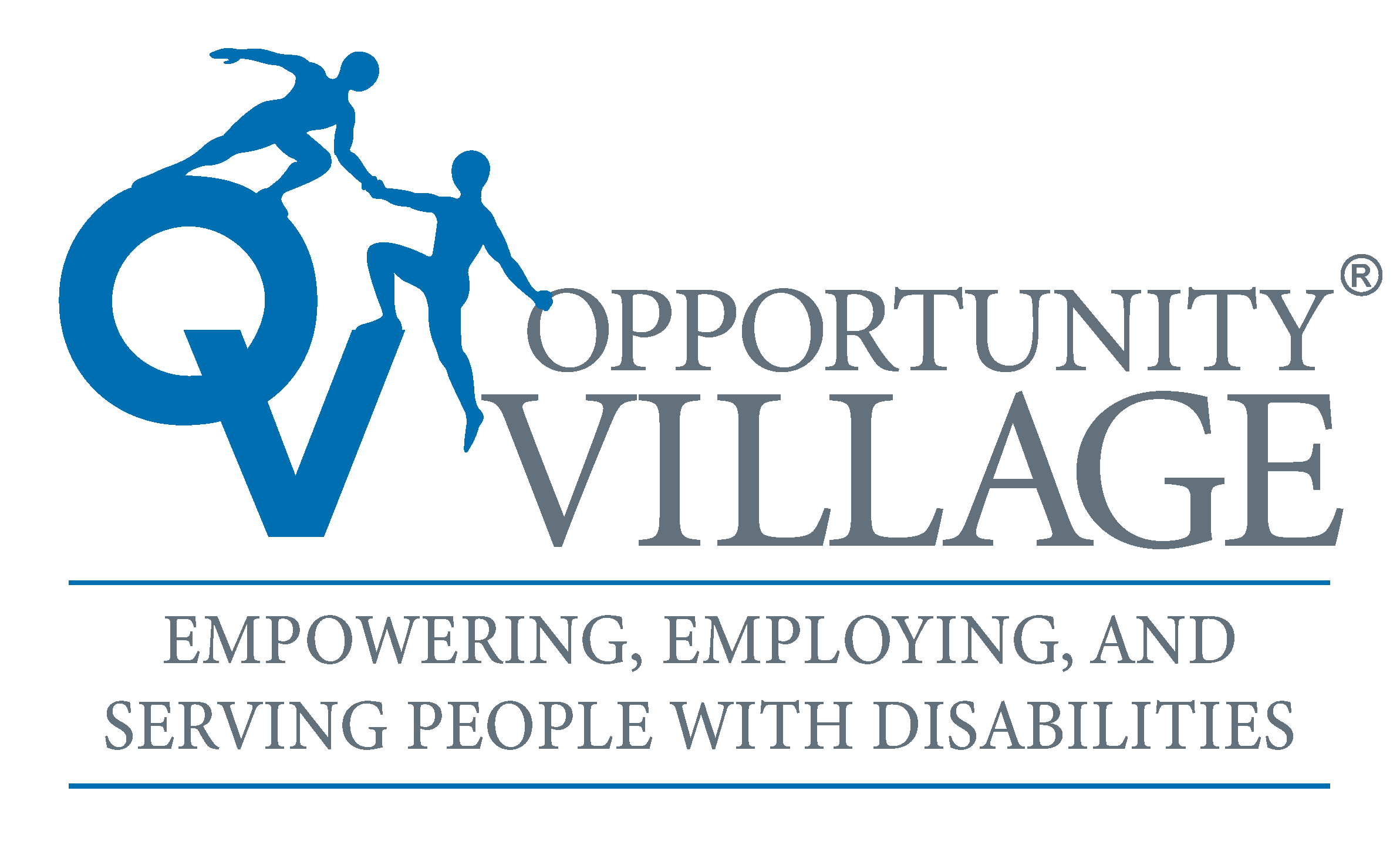
Have you asked yourself: ”Should I get a service dog?”
Service animals can be incredibly helpful for people with disabilities. They are specially trained to provide invaluable assistance and accommodation to people facing physical, mental health, or medical challenges. However, they are not right for everyone.
If you’re considering getting a service dog for yourself or a loved one, here’s what you need to know first.
What Are The Differences Between Service, Therapy, and Emotional Support Animals?
When determining if a service dog is right for you, it’s important to understand the distinctions between service, therapy, and emotional support animals (ESAs)–especially in the context of ADA laws:
Service Animals
Service animals, like guide dogs, receive specialized training in obedience and tasks to assist individuals with disabilities. They’re legally protected under the ADA, granting them access to public places.
Therapy Animals
Therapy animals, on the other hand, aren’t covered by ADA laws. They undergo training to provide comfort and emotional support to various people, often in healthcare settings.
Emotional Support Animals (ESAs)
ESAs offer emotional comfort, but their legal status differs. They don’t receive specific training, and their access rights are limited compared to service animals.
Understanding these differences will help you figure out what type of animal matches your unique needs.
How Service Animals Help People with Disabilities
Service animals can improve the lives of people with disabilities in a number of ways. They can be helpful in creating more enjoyable excursions and make daily activities easier to navigate. Here are just a few of the ways they can help:
1. Mobility Assistance: A service animal can be trained to help people navigate more safely. For example, helping pull a wheelchair up an incline and helping with balance and stability.

2. Medication And Medical Alerts: A service animal can have special training to give reminders for taking medication on a regular schedule and can help alert their owner before a medical issue occurs.
3. Adaptive Equipment & Accessibility: If a person has a disability that makes opening doors or operating adaptive equipment difficult, a service animal can be of great assistance.
4. Sensory Assistance: Service animals with special training to help with sensory processing difficulties can use deep pressure therapy and alerts to help prepare owners for sensory overloads to make crowded or noisy environments easier to manage.
5. Emotional Support: Outside of physical assistance, service animals may provide emotional support. Reducing stress and anxiety while encouraging relaxation can help improve overall mental health.
Service animals can offer practical assistance and emotional companionship, ensuring their handlers can navigate the world with dignity and confidence.
What Types of Disabilities Qualify For A Service Animal?
Service animals play a crucial role in enhancing the lives of individuals with various disabilities, including:
Physical Disabilities
Individuals with physical disabilities like wheelchair users often benefit from service animals trained to perform tasks like opening doors, retrieving objects, or assisting with mobility.
Developmental Disabilities
Service animals can support individuals with developmental disabilities and those on the autism spectrum. By offering emotional comfort, reducing anxiety and promoting sensory regulation, these animals can make daily life a little easier for those they serve.
Intellectual Disabilities
People with intellectual disabilities may benefit from having a service animal. The help they can provide to assist with daily tasks and routines can contribute to more independence and improved quality of life.
A licensed service animal trainer will work with you to make sure the dog gets the proper training to be as helpful as possible for your unique needs.

Pictured: Namaste, a service dog visiting Opportunity Village in Las Vegas.
The Process To Get A Service Animal
If you live in Nevada, you should start the process with your medical provider. Your doctor or therapist can discuss your disability and review the possible benefits of having a service animal. They can provide insight and guidance on how or where to apply.
Then, look for an accredited, local service animal organization. Check online and with others in the community to ensure they have a good reputation. Once you are confident in the organization’s credibility, contact them to ask your questions and start the application process. Be prepared to provide your document of disability. You will likely need to
undergo an assessment to determine your suitability for a service animal.
If approved, you’ll work with the organization or trainer to select and train your service animal.
Finally, familiarize yourself with the laws related to service animals in Nevada. Under the ADA, individuals with disabilities can be accompanied by their service animals in most public places, but Nevada has additional state-specific protections and guidance.
Obtaining a service animal is a significant decision that should be carefully considered. Following a reputable process is essential to ensure you’re paired with a well-trained companion who can truly enhance your quality of life.

What Responsibilities Come With Having A Service Animal?
An consideration about a service dog is the amount of responsibility that comes with ownership. While a service animal can be helpful, they may be more of a burden for some. General responsibilities include providing regular meals, proper exercise, and veterinarian visits. Pet ownership is costly, so financial feasibility and budgeting is crucial.
Further, maintaining a kennel or a suitable living space in housing with a yard is essential for the animal’s comfort. Service animals need adequate exercise, and the breed can influence the level of activity required.
Remember, while service animals offer invaluable support, they are part of the family, deserving of love, attention, and the occasional favorite toy. Ensure you can also make the proper accommodations before getting a service animal.
What Are Some Alternatives to Service Animals?
Service animals are not right for everyone with a disability.
Luckily, there are several alternatives to service animals, depending on individual needs and preferences. For emotional support, cats can provide affection without needing a yard. Equine-assisted therapy can also help without requiring having an animal.
Further, low-maintenance pets are another option. For example, fish offer soothing visuals with minimal care requirements, and hamsters can provide affection in smaller spaces. These alternatives can be excellent options if a service animal doesn’t align with your lifestyle or circumstances, providing emotional support and fulfillment in their distinctive ways.

Opportunity Village’s Resident turtle, Tulip.
If you’re wondering, “Should I get a service dog?” The answer is it depends on your needs.
Service dogs can truly enhance the life of a person with disabilities. However, they have a lot of responsibility. Thus, the decision shouldn’t be made lightly.
Looking for more topics like this? We are dedicated to helping people with disabilities find the very best version of themselves. Learn about additional disability support resources here.





